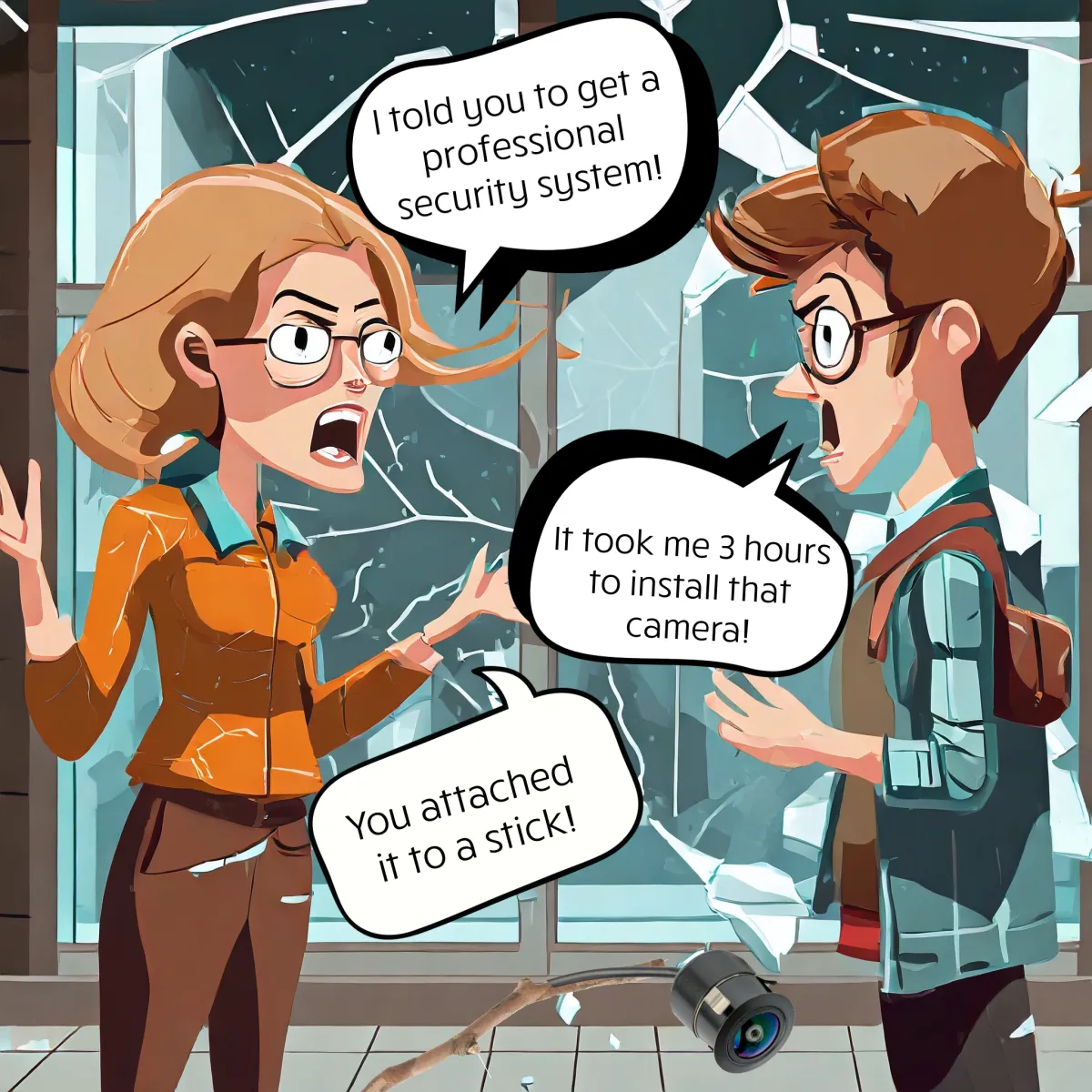
Why DIY Security Systems Won't Work For Your Business
Why DIY Security Systems Don’t Work For Business
In a world where creativity and self-sufficiency reign supreme, the do-it-yourself (DIY) ethos has seamlessly woven into our daily pursuits. From crafting homemade furniture to cultivating rooftop gardens, the allure of self-reliance is undeniable. However, there’s a line where the DIY charm might wear thin, and that’s particularly true when it comes to securing your commercial business. The allure of DIY security systems may be more fiction than function. Businesses should think twice before embarking on a DIY security venture. From scalability challenges to integration issues, we’ll dissect the technical shortcomings that make off-the-shelf solutions less than optimal for safeguarding the complex ecosystems of modern commercial environments.
Limited Scalability
One of the primary drawbacks of DIY security systems in commercial spaces is their limited scalability. Commercial environments often require complex security setups, including multiple entry points, video surveillance cameras, and access control systems. The ability to scale on the level that a commercial business needs may be limited in the DIY platforms.
While the convenience and affordability of DIY options are appealing for smaller businesses, as your company grows, the limitations of a DIY system become more apparent, leading to gaps in security coverage.
Lack of Professional Monitoring
In a tech-driven landscape of commercial security, the absence of professional monitoring in DIY solutions is akin to navigating a ship without radar. The consequences of a security breach, from theft to vandalism, and potential harm to employees, can be severe. In addition, most small business owners do not check alerts overnight while sleeping when many security events occur.
Professional monitoring offers a real-time response mechanism by trained personnel, providing businesses with an invaluable layer of protection. Trained security personnel can respond swiftly to alerts, verify the situation, and contact the appropriate authorities 24/7/365.
Reliability Concerns
Commercial spaces demand a higher level of reliability from their security systems. DIY systems, often built with consumer-grade components, may not meet the durability and performance standards required for a commercial environment. Most DIY systems utilize wireless components that can be subject to interference, poor signal, or even signal jamming by more sophisticated criminals.
The consequences of system failures or false alarms can be financially and operationally impactful for businesses, leading to disruptions, loss of valuable assets, and potential legal repercussions. Commercial security systems, engineered to meet stringent reliability standards, are designed to perform consistently in diverse conditions, ensuring uninterrupted protection.
Integration Challenges
Commercial security is not a one-size-fits-all endeavor; it requires an integrated approach to security, incorporating access control, surveillance, fire detection, and other specialized systems. DIY solutions, with their off-the-shelf nature, often lack the necessary compatibility needed for seamless integration with existing or future security components. This lack of cohesion can result in inefficiencies, increased maintenance costs, and difficulties in managing a unified security infrastructure.
DIY systems also tend to be closed ecosystems that don’t allow cameras to be integrated with access control or other 3rd party components.
Time & Expertise
You aren’t a security system expert, and you aren’t running a security alarm and camera installation company.
Do you know all of the industry standard design protocols?
Do you know if your system is installed according to best practices?
Are you going to get the coverage and capabilities that you need?
These answers come with the experience that a real security company brings. Your time is more valuable to the business when you are focused on working on the business, not installing wireless cameras.
Vulnerabilities to Hackers
DIY systems are especially vulnerable to hackers. These systems often grapple with inadequate encryption protocols, weak password practices, and limited firmware updates, creating a breeding ground for cyber threats. Remote access risks and a lack of robust intrusion detection systems further compound the issue. Utilizing open-source components, while cost-effective, introduces potential pitfalls. In contrast, commercial-grade security systems, fortified with advanced encryption standards, stringent password policies, regular updates, and sophisticated intrusion detection capabilities, present a resilient defense against cyber threats.
While the allure of DIY solutions is undeniable in various aspects of life, the realm of commercial security demands a more sophisticated and tailored approach. As commercial entities navigate the complexities of security, investing in proven, tech-enabled solutions becomes not just a choice but a strategic imperative. In the evolving tech-driven world, businesses need security systems that don’t just keep up – they lead the charge in fortifying against potential threats.
Ready to level up your business’ security game the right way? TCI is your local ally in making sure your business gets the protection you need. It’s time to ensure scalability, seamless integration, professional monitoring, reliability, and compliance assurance. Your business deserves the gold standard in security tech – TCI awards your business with just that. Call at (757) 490-7733